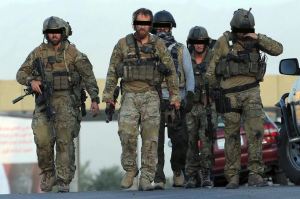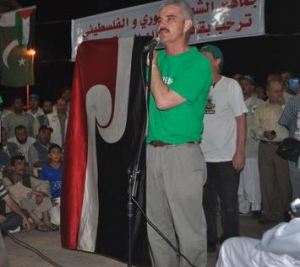 Pat Odea climate change editor
Pat Odea climate change editor
On the news that John Key is sending New Zealand Defence Force personal to the Middle East to combat Isis. According to the Prime Minister. the New Zealand Defence Force will play a similar role to the PRT “Provisional Reconstruction Team” we deployed in Afghanistan’s Bamyan Province, which were withdrawn last year, with little, or nothing to show for their efforts.
For ten years, at the cost of ten New Zealand lives, and a financial cost of tens of millions of dollars annually, New Zealand maintained a heavily armed military presence deployed in Afghanistan Helmand and Bamyan provinces, avowedly doing “reconstruction work”. We would have been better off, spending that money on maintaining an unarmed civilian ‘Uncomplicated’ Kiwi team in Afghanistan at no cost of New Zealand lives.
http://www.commondreams.org/views/2014/11/20/uncomplicated-afghanistan-health-and-healing-war-torn-nation‘ “Uncomplicated” by Kathy Kelly
I wish that NATO’s commander could have joined Afghan Peace Volunteers (APVs) that same week in Afghanistan as they visited an extraordinarily sustainable project, called “Emergency.” This Italy–based network of hospitals and clinics has been particularly remarkable for effectively saving and improving the lives of many Afghan people, over the past 13 years, while at the same time rejecting any form of war or use of weapons within its facilities.
At the entrance to any one of Emergency’s clinics or hospitals, a sign at the door says “No Weapons Allowed.” A logo banning guns is next to the Emergency logo. Although they work in one of the most intense war zones in the world, Emergency staff, including security guards, reject any use of weapons inside their facilities.
Yusof Hakimi, the nurse in charge of Emergency’s ICU in the Kabul hospital, assured us that the ban is strictly upheld. A child isn’t allowed to carry a plastic toy gun inside the hospital premises. No one can wear camouflage clothing. “Even the president of Afghanistan cannot carry a gun inside our hospitals!” says Luca Radaelli, the medical coordinator of Emergency’s hospital in Kabul. He added that it’s not easy to maintain a facility where wars are banned. “But,” he adds, “everyone understands the purposes and respects the rules.”
They’ve learned ways of providing security without the use of weapons. One such way involves an absolute commitment to neutrality.
They never take sides in the various conflicts that plague Afghanistan.
In fact, they don’t even ask if a patient belongs to one side or another.
Most NGOs in Afghanistan arrange for their staff to travel in heavily armed vehicles. But unarmed Emergency ambulances travel through war zones, in multiple directions, across the country. “We don’t have armed guards,” says Luca. “We don’t have bullet proof cars. We don’t change our routes because,” he explains in his clear, matter-of-fact style, “we have never been targeted.”
Luca says they acquire, and maintain, security through their reputation. Since they never charge any patient for health care, they could not be accused of trying to make a profit.
They also pursue strong diplomatic conversations with each group affected by their work, such as new workers, contractors, local government officials, and religious leaders. They explain their policy of maintaining neutral independence toward everyone involved. “If you provide something good, something skilled, and it is free of charge,” he adds, “there is no need to protect yourself. People won’t get angry.”
If NATO and U.S. commanders took a fraction of what they have spent securing this region by violence—the Pentagon has requested 58.5 billion dollars for Fiscal Year 2015 in Afghanistan—and spent that instead to help people harmed by the ravages of war, could non-combat projects, such as Emergency’s, start to work? There are numerous, obvious solutions to problems in Afghanistan which NATO countries could actually consider,or even attempt, if the alliance was actually there to help improve the quality of life for Afghan people.
One solution is to establish health care programs similar to what Emergency has created.
However, Emergency isn’t in Afghanistan to point out a sane path through disaster to all the actors, here and abroad, who seem unlikely to discard paths of suicidal hatred and ignorance.
In Luca’s view, Emergency is simply what a healthcare institution ought to be.
“It grows from a very simple idea. Provide high quality service for everyone, not thinking about profit, but just about patients’ health.”
“What is so complicated?” he asks.
We might address a similar question to NATO Sec. Gen. Jens Stoltenberg: A new, non-combat mission, in Afghanistan, one that rejects weapons and war. What would be so complicated?
Now that is the sort of New Zealand intervention that I would volunteer for.
Pat O’Dea
Pat O’Dea was a volunteer on the Kiaora Gaza mission of 2010 to deliver urgently needed medical supplies to the beseiged territory of Gaza, that passed through Turkey and crossed Syria on it’s way to Palestine and succeeded in entering Gaza in defiance of the Israeli and Egyptian military blockade.
Author Pat O’Dea displays the Tino Rangatira flag at a gathering at the Latakia Palestinian refugee camp, Syria 2010. Speaking through an interpretor, O’Dea gave a brief history of colonialism and imperialism in New Zealand, and the significance of, and the reason the New Zealand volunteer aid mission flew two flags on their the vehicles. The flag of the Dominion, with the Union Jack in the corner and the Tino Rangitiratanga flag, with the Koru.


